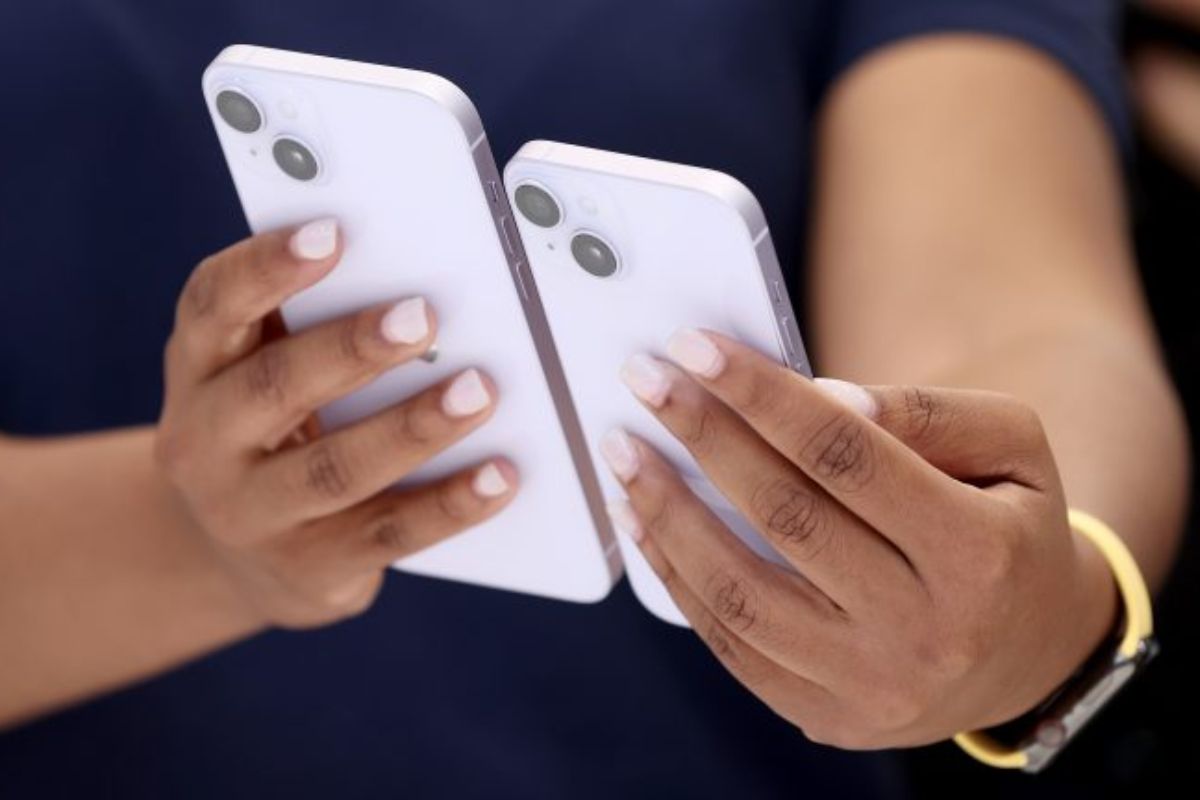In a small note at the end of a recent press release, Apple said that the iPhone 14 Plus would be available in Colombia later this month. The problem was that the iPhone 14 had been banned in Colombia since it came out because Apple was still in a legal battle with Ericsson over 5G networks. When the Rest of the World called, Ericsson’s lawyer in Colombia, Carlos Olarte, didn’t know about the news. “I think it’s a mistake,” he said, pointing out that this would be a direct violation of the ban.
After Ericsson sued Apple for patent infringement in Colombia and many other countries, a judge banned the import and sale of any of Apple’s 5G devices in July. Ericsson wants Apple to pay for using its 5G patents, even though the 5G network hasn’t been set up in the country yet. Apple has refused to pay the $5 fee that it wants for each iPhone. So far, only Colombia has banned Apple’s 5G devices as a precaution until a final decision has been made.
The rest of the World tried to get a comment from Apple but didn’t hear back. At the time of publication, the press release about the release of the iPhone 14 Plus in Colombia on October 28 was still up.

Ericsson said in its lawsuit against Apple that Colombia “only makes up about 0.2% of Apple’s worldwide sales.” Still, the Swedish telecoms giant insists on suing in Colombia because it is a “precautionary measure that sends a very important message in the [legal] negotiations,” Olarte told Rest of World. “It’s still a big number if you do the math.”
When the new iPhone came out in August, Colombians couldn’t find it in Apple stores, big-gadget stores, or with their carriers. The only other choice was to buy it on the black market. Buyers and sellers told the Rest of the World that brick-and-mortar stores get the phones into Colombia by paying smugglers a lot of money to bring them in slowly. Some sellers pay Colombians who are going to the United States up to $300 per phone to smuggle it into their luggage. The rest of the World talked to vendors who said that the higher prices are because of the risk they are taking. This means that customers are paying a lot more and are worried that their new iPhones might not work on the Colombian telecoms network.
Want To check more
- Why Should You Purchase The Apple iPhone 14 Pro?
- The iPhone 14 keeps Dialing 911 During Roller Coaster Rides
- When Will The iPhone Be Forced To Use USB-C?
People will go to the U.S. and ask my bosses to bring phones back, said a worker at Thania Cel, a small phone store in Bogotá that promotes the iPhone 14 on Instagram. They asked not to be named because they didn’t want to be singled out by authorities.
A worker at another phone store in Bogotá, who also spoke on the condition of anonymity, told Rest of World that customs agents at the airport had asked some smugglers, who were often just ordinary passengers interested in the smuggling fee paid by shop owners if they were carrying an iPhone 14. The store clerk told Rest of World that none of the people who work for the store as smugglers have had their phones taken away by the police.
People charge a lot for these phones because they don’t know how dangerous they are. On Apple’s website, the base model of the phone costs $799, but it cost almost 5 million pesos (about $1,084) at a store in Colombia, which is 36% more. Uncertainty also means that prices vary a lot between stores. For the same model, one store might charge up to 600,000 pesos (about $130) more than another.
Apple has appealed the decision and, in hopes of getting a different result this time, has gotten the iPhone 14 certified by the Colombian telecommunications regulator, which is something companies do before putting phones on the market.
Even though the details of the case are still being worked out in court, people in Colombia still buy and sell iPhones. Even though almost all of the financial risk of smuggling falls on the seller, buyers still have to worry that their expensive new iPhones won’t work or won’t be fixed if something goes wrong.
“The ban also means we can’t bring in devices for spare parts,” a technician from an authorized repair shop told Rest of World on the condition of anonymity because they were talking about private information.
The clerk at Thania Cel told Rest of World that the U.S. warranty still applies, even though a customer would have to wait a long time to get it fixed on a different continent.
Once this banned device is sold, the power balance changes because the person who sold the iPhone to the buyer now has all the power. When the Rest of the World asked a vendor in Colombia how to fix a new Apple phone, the vendor gave a vague answer: “If you have problems with your iPhone 14, just bring it to me. I’ll take care of it.
Keep following our site Nog Magazine.com for more updates.